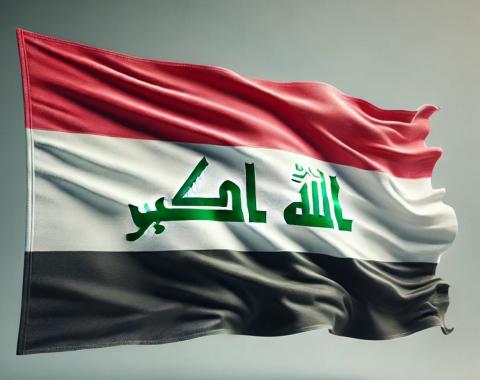
On 25 March 2025, Alkarama submitted its follow-up report to the United Nations Human Rights Committee regarding Iraq’s implementation of the recommendations made during its sixth periodic review, which took place in March 2022 in Geneva. These recommendations focus on crucial issues such as the fight against terrorism and the prohibition of torture.
The Human Rights Committee, composed of independent experts, is responsible for monitoring the implementation of the International Covenant on Civil and Political Rights (ICCPR) by state parties, a treaty Iraq ratified in 1971. Through its periodic reviews, the Committee urges states to align their national practices with international standards, while identifying gaps and encouraging states to address them.
Following its 6th review, Iraq was called upon to submit a follow-up report on the implementation of the recommendations issued. This process also allows non-governmental organisations to contribute by providing additional information, ensuring a comprehensive and objective evaluation of the human rights situation in the country.
In this context, Alkarama presented its follow-up report, highlighting Iraq’s ongoing failure to meet its human rights commitments.
Lack of Reform and Systematic Violations
Despite the Committee’s recommendations for legislative reforms, Iraq has taken no significant action to improve human rights in its fight against terrorism or to eradicate torture.
The current anti-terrorism legislation remains inconsistent with international norms, and its vague provisions allow for arbitrary decisions and death sentences without guarantees of fair trials. Meanwhile, executions continue at an alarming pace. It is currently estimated that more than 8,000 people are awaiting execution, while political leaders openly call for an acceleration of these executions.
In October 2024, mass executions were carried out under pressure from political leaders and militias for sectarian reasons. These executions, following unfair trials, caused outrage among human rights organisations, with reports of dozens of executions in just a few weeks.
Torture and ill-treatment remain widespread in Iraqi detention centres, where prisoners suffer physical violence, enforced disappearances, and inhuman detention conditions. Despite well-documented evidence of these practices, no independent inspections of detention facilities take place, and confessions obtained under duress are still used in court. This impunity contributes to the isolation and marginalisation of detainees, who are often denied adequate medical care and subjected to food deprivation.
Alkarama Calls for Urgent Action
In its report, Alkarama condemns Iraq’s inaction, which has allowed these severe human rights violations to continue. The lack of legislative reforms has fostered an environment where torture, ill-treatment, and unfair trials can persist without effective oversight. Confessions obtained under duress continue to be used in courts, perpetuating a climate of disrespect for fundamental rights. This situation is exacerbated by the severe polarisation of society and the absence of independent monitoring mechanisms, creating a cycle of violence and impunity.
In light of these findings, Alkarama has called on the Committee to urge Iraq to take immediate action on these issues, align its laws with international standards, and demonstrate a sustained commitment to human rights and accountability, in order to end the current cycle of abuse.
